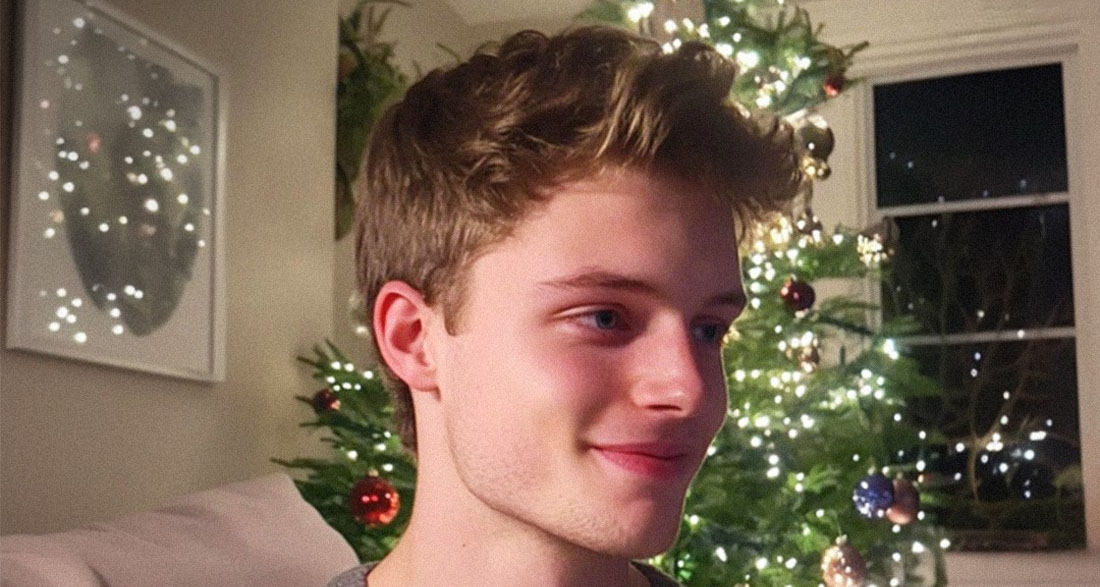It was Christmas Eve, and I thought I was doing a good thing by helping a young man who was freezing in the cold. But little did I know, that night would change my life forever.
It all started on that snowy, quiet evening. The world seemed to have gone still, wrapped in thick snow and darkness that felt heavy. I had just visited my late husband Michael’s grave at the cemetery, as I did every year on Christmas Eve. Standing there in my coat, staring at the cold stone with his name carved into it, I felt the ache of missing him—like it was yesterday.
This year, though, the loneliness seemed even worse. Earlier, my son David had called to tell me they couldn’t come for Christmas because my seven-year-old granddaughter, Lily, was sick.
“I’m sorry, Mom. We’ll come as soon as she’s better, I promise,” David had said.
“Of course,” I replied, trying to hide the disappointment in my voice. I understood, but it still hurt. The house felt so empty.
On the drive home, through the quiet, snow-covered streets, I saw him. At first, I thought he was just a shadow, hunched under a streetlamp. But as I got closer, I saw it was a young man, barely covered by a thin jacket, sitting on the ground with his knees pulled to his chest. He looked freezing.
Normally, I might have kept driving, but something about him made me stop. I rolled down my window and called out, “Are you okay? Why are you out here in this weather?”
He slowly turned to face me, and I saw his light-brown eyes shining in the dim light. “I… I have nowhere else to go,” he said, his voice almost lost in the wind.
I thought for a second, then motioned for him to get in. “You’ll freeze out here. Come on.”
He hesitated but then climbed into the car, brushing snow off his worn pants. “What’s your name?” I asked as I cranked up the heat.
“Carlos,” he answered, his voice hesitant.
“Well, Carlos, you’re coming home with me tonight. It’s Christmas Eve, and no one should be out in this cold,” I said with a smile.
He looked at me for a moment, his eyes softening a little, then nodded.
At home, I gave him some of my son’s old clothes and showed him to the bathroom. “Take your time to warm up,” I said. While he was in there, I made hot cocoa, even though I usually saved the marshmallows for Lily.
When Carlos came back into the living room, clean and in fresh clothes, he looked younger than I had first thought. He wrapped his hands around the cocoa like it was the most comforting thing in the world.
“You remind me of my son,” I said, sitting down across from him. “That’s probably why I stopped.”
He smiled faintly. “Gracias… I mean, thank you,” he corrected himself.
“De nada,” I replied with a smile. I wanted to ask more about him, about what had brought him to the streets, but when I tried, his face darkened.
“It’s… complicated,” he said quietly, staring into his cocoa.
“Fair enough,” I said, not wanting to press him further. We ended up watching a cozy Christmas movie, and later, I showed him to the guest room. “Goodnight,” I said. “If you need anything, just knock.”
“Thank you,” he said softly, barely above a whisper.
But that night, hours later, I woke to the faint creak of floorboards outside my door. My heart skipped a beat as I saw Carlos standing in the doorway, holding something. My breath caught. Panic surged through me. What was he doing?
“Stop!” I shouted, my voice shaky with fear. “What are you doing?”
Carlos froze, his eyes wide with alarm. “Wait!” he said quickly, holding up the object in his hand. It was a small orange bottle—my heart medication.
“You didn’t take this,” he said gently. “I saw it on the counter. My abuela used to take this every night before bed.”
Relief washed over me, mixed with a wave of shame. “Oh,” I whispered. “I… I forgot. Thank you.”
He nodded and placed the bottle on the nightstand. “Goodnight,” he said quietly before disappearing down the hall.
I stared at the bottle, my chest tight with embarrassment. I had feared the worst, and yet he was just trying to look out for me.
The next morning, I made pancakes, using the last of my frozen blueberries. Carlos joined me at the table, hesitant but grateful. I slid a small box toward him.
“What’s this?” he asked, surprised.
“Open it.”
Inside was a scarf I had knitted years ago, red and white, nothing fancy but warm. Carlos smiled—a real smile this time—and immediately wrapped it around his neck.
“Thank you,” he said quietly.
As we ate, Carlos suddenly stood up, grabbing his duffel bag. “You’ve helped me so much,” he said, his voice full of emotion. “But I should go now.”
“Where will you go?” I asked.
He hesitated. “I don’t know. I’ll figure something out.”
“Wait,” I said quickly. “Why don’t you stay a little longer? Help me around the house. I could use the company.”
His eyes lit up with hope. “Really?”
“Of course. Consider it room and board in exchange for some help.”
He set down his bag, smiling.
In the weeks that followed, Carlos became part of my routine. He was quiet and respectful, always keeping his space tidy and never overstepping. Slowly, he began to open up. One night, as we sat by the fire, he shared his story.
Carlos had been kicked out by his parents for choosing art over a “practical” career. A string of bad luck had left him homeless, jobless, and alone.
“You saved my life,” he said softly, staring into the fire.
I reached out and placed a hand on his. “You don’t have to worry about that anymore. You’re safe here.”
A year later, Carlos had a job and a small apartment nearby, but he still visited often. He had become part of the family, even winning over my granddaughter Lily.
As we decorated the Christmas tree that year, I realized just how much my life had changed. Carlos was no longer a stranger. He was family.
Carlos always says I saved his life. But the truth is, he saved mine too.
What do you think of the story? Share your thoughts in the comments below!














